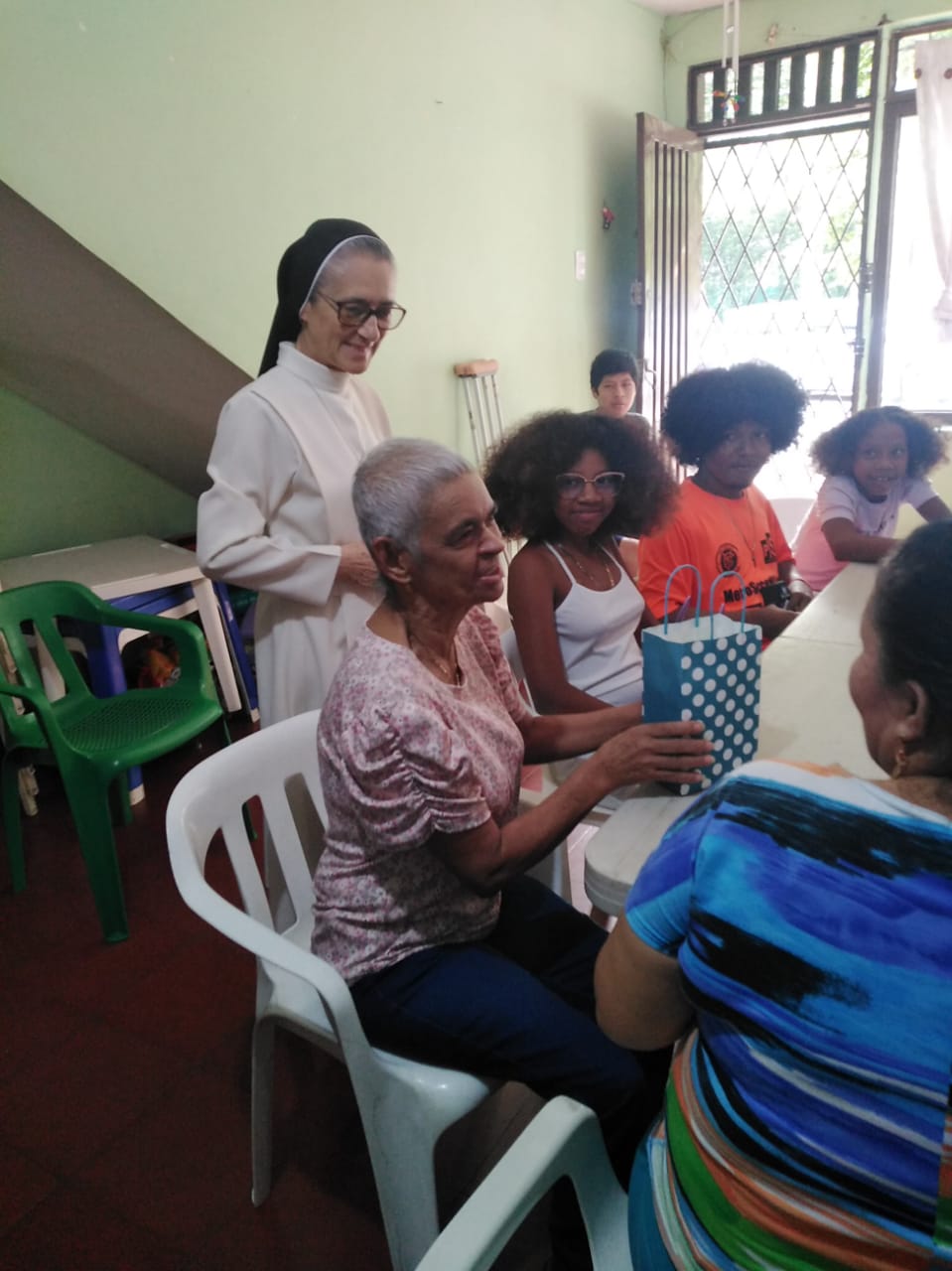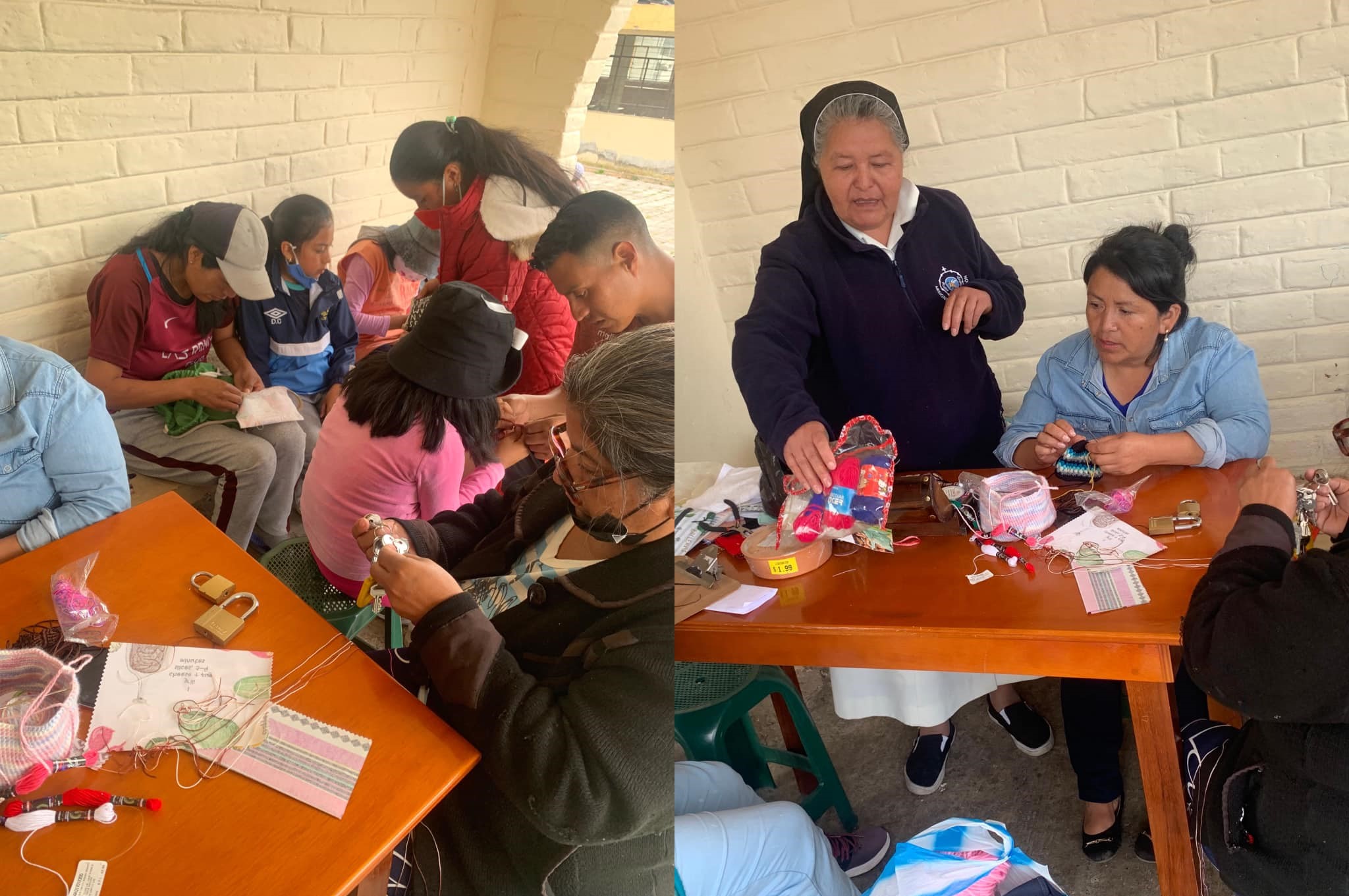Roma (Italy), 09/08/2023, Justice and peace.- One of the options contained in our project for Justice, Peace and the Integrity of Creation is "the option of listening to the cry of the poor". How can we understand this option so that it transcends our service to Charity in the manner of Marie Poussepin? What are the expressions of this option in the Congregation today?
 In the first place, this option concerns the essential content of the Gospel message: taking up the cause of the poor and choosing unequivocally, in a situation of structural conflict, through the Gospel. It was to assume the option of Jesus that led him to identify himself totally with them "Truly I tell you, when they did it with some of the least of these my brothers, they have done.” Mt 25:40. This would be the spirituality of the new community, a sign of the Kingdom.
In the first place, this option concerns the essential content of the Gospel message: taking up the cause of the poor and choosing unequivocally, in a situation of structural conflict, through the Gospel. It was to assume the option of Jesus that led him to identify himself totally with them "Truly I tell you, when they did it with some of the least of these my brothers, they have done.” Mt 25:40. This would be the spirituality of the new community, a sign of the Kingdom.Second, this listening must transcend our charitable service and suggest the need to understand and respond appropriately to the needs of people experiencing poverty. It involves paying attention to the voices and demands of those who suffer economic and social deprivation. Means being aware of their problems and difficulties and acknowledging their suffering. Transcend charity service that seeks to create impact and long-term and address structural and systemic inequalities that perpetuate the needs to which it has dedicated charity. It is a more holistic and proactive approach that seeks to change social and economic conditions to promote greater well-being and integral development of subjects and communities. In summary, charity is important, but it is also essential to tackle the underlying causes of poverty and seek lasting solutions.
Third, in contexts of restructuring and revision of the missionary presence, clarity on the content of the Gospel message of Jesus Christ and the coherence of its practice, the unconditional service of brothers and sisters makes possible a new life, a sign of the Kingdom. In this context, there is an urgent need to rescue the charismatic and prophetic identity of our style of consecrated life since the weakening of our witness has much to do with the predominance of instrumental reason in our mission. To confuse the mission with duties and at worst with a job, pushed us to an exhausting militancy. The heart of our life is the radical experience of Faith, a mystical experience of God and the Kingdom. This experience is prior to any being and any doing of religious life. Restructuring therefore has to do with a mission that responds to the hopes of humanity today.
Finally, the call of the JPIC Project to globalize Solidarity for Organized Charity by Marie Poussepin encourages us to transcend personal and geographical boundaries, to include people of different cultures, nationalities and socio-economic conditions, to recognize our interdependence in as human beings and the responsibility we have towards each other to keep ourselves informed of the problems that humanity is facing in different parts of the world, to intensify efforts for humanitarian aid and support for causes and to organizations seeking to improve lives from the perspective that global problems require collaborative solutions.
To conclude that the expression of this congregational option THROUGH LISTENING TO THE CRY OF THE POOR should be part of our processes of restructuring, of examining the missionary presence which leads us to understand humanity, its conflicts, and problems and to pursue the path traced by Marie Poussepin: "She saw what is right in the eyes of the Lord and accomplished it." A "Charity that embraces the human being in its totality and responds to their different hungers: hunger for bread and knowledge, hunger for dignity and recognition, hunger for happiness, hunger for truth, hunger for God.” (Ratio Formationis, page 11).



 EN
EN  ES
ES  FR
FR 



